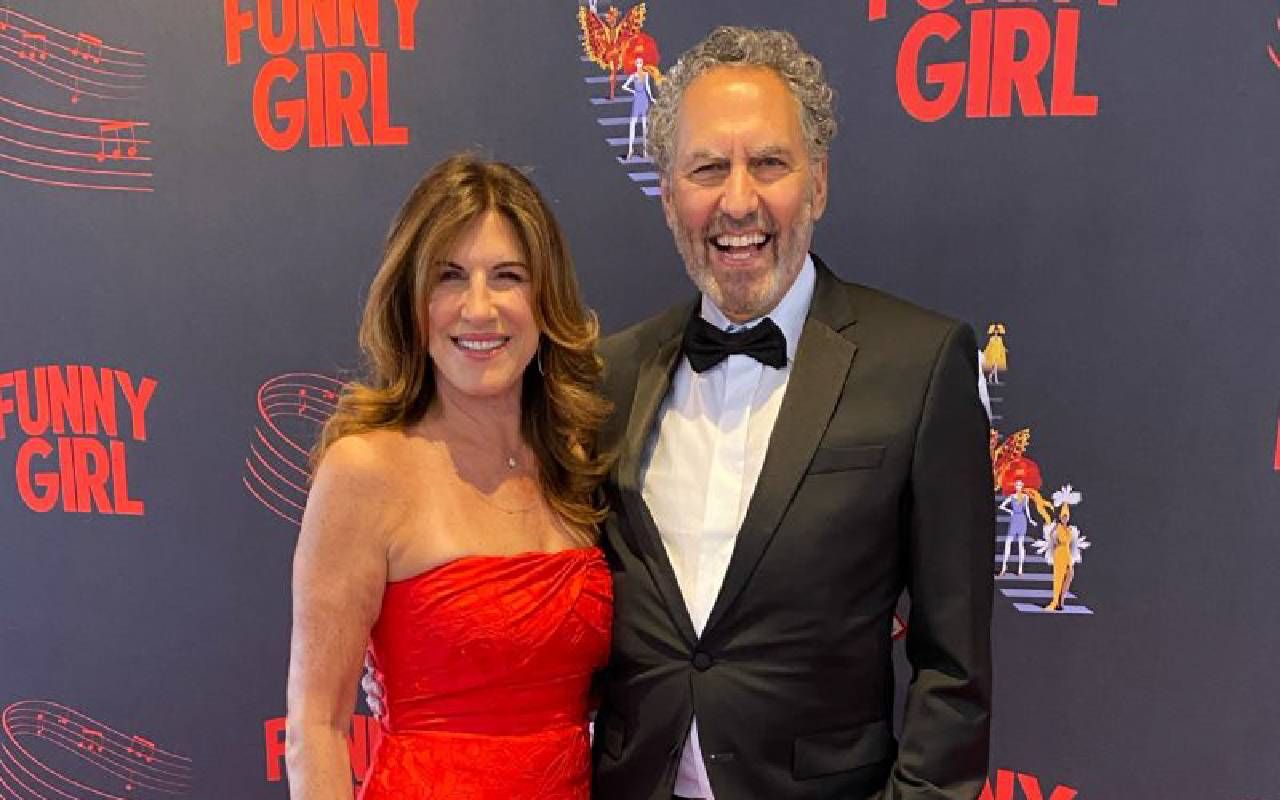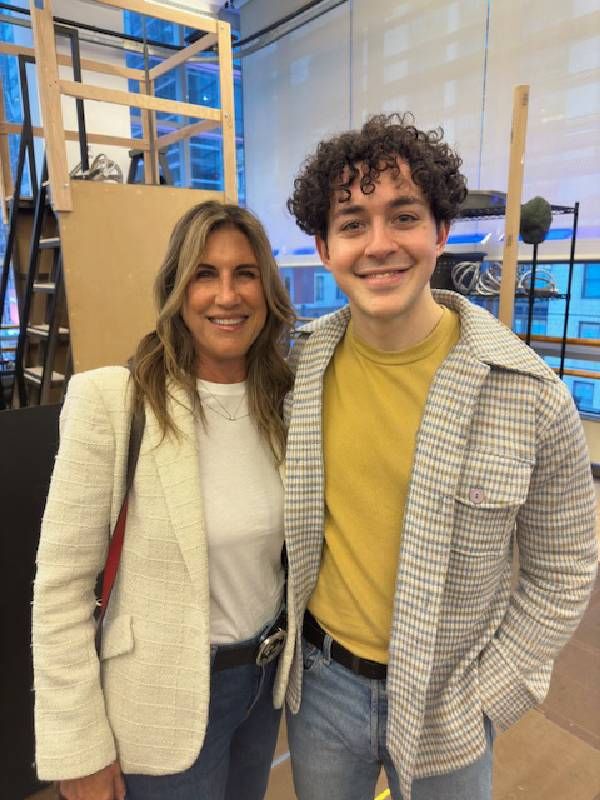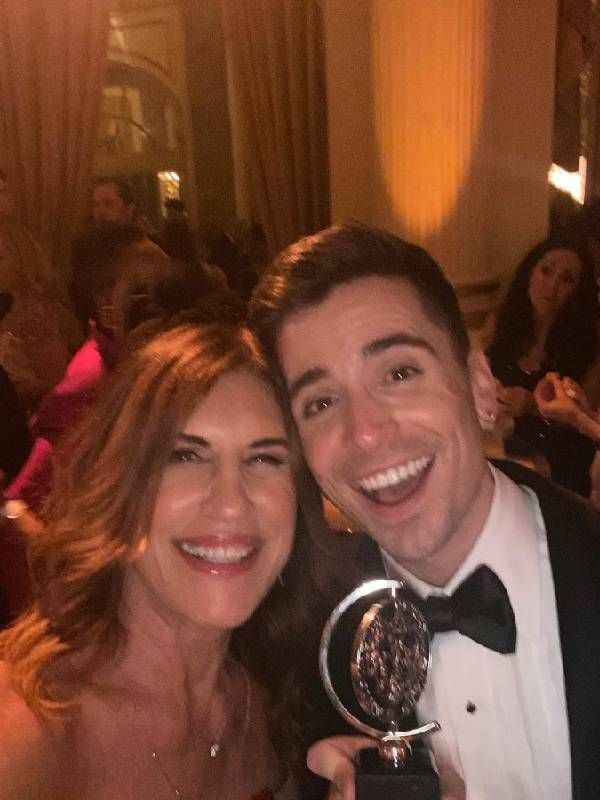What It’s Like to Be a Broadway Producer
Imagine raising millions of dollars and then spending months perfecting the marketing, social media and other promotional activities
When the curtain goes up on March 28 for The Who's "Tommy," Ellen Botwin will be there. A retired teacher, Botwin's passion is investing in shows on Broadway in New York City and the West End in London. Working as a co-producer of "Tommy" is a dream come true.
"It's so much fun," she says. "I don't care if I ever make a cent."

But most of the time, Botwin, 67, along with her husband, Howard Ignal, 77, do make back their investment, and then some.
For Botwin, "Tommy" brings back memories of college, driving to cities along the East Coast and camping out for tickets to The Who. Pete Townshend, the band's cofounder and songwriter, is the composer and book writer of the Broadway musical, which will likely go on tour once the Broadway run has wrapped up. The tour could potentially go on for seven years.
"The stars are grateful to the investors. No investors, no show."
(Even before college, Botwin first "produced" the rock opera in 1974 at Camp Laurelwood in Madison, Connecticut. As a 50th camp reunion, she's arranging Broadway tickets for some 50 to 100 former campers.)
Producers are the money behind the shows. The minimum investment for a Broadway show is generally $50,000, and that person or group is considered "investor" level.
For example, "Tommy" needed roughly $10 million just to open on Broadway. The initial funding goes toward renting a theater, making costumes and paying actors, ushers, lighting people, merchandise, costumes, royalties and more.
In contrast, the upcoming production of "Cabaret" needed $24 million to open because of the $11 million expense to turn the August Wilson Theater in New York City into an authentic version of the fictional Kit Kat Club.
The co-producer level is generally an investment of $250,000 or more. Botwin and Ignal are co-producers of "Tommy" and "Cabaret" with investing partners.
But investing the money is just the beginning. Botwin travels by train from her home in Connecticut to New York City as often as three times a week as opening night approaches. She attends readings, meets the cast, sits in on rehearsal and more. Botwin is often called to Zoom meetings with the lead producer, fellow investors and co-producers, directors and actors to discuss marketing and social media, casting and promotional activities, among other topics.
Meetings, Marketing and More Money
Botwin also recruits investors for shows, often sending slide decks and audio tracks to friends and acquaintances to pique their interest.
Townshend wrote the music and lyrics for "Tommy," which is the story of a young boy who witnesses his father kill his stepfather and, as a result, becomes psychosomatically deaf, mute and blind. Tommy is a victim of sexual abuse and bullying, but becomes a pinball wizard, eventually regaining his senses and achieving fame.

Producers say they believe that this latest production will resonate with the audience for its exploration of childhood trauma and the cult of celebrity. "Tommy" first appeared as a double-LP record in 1969.
Last month, Botwin attended the first complete run-through of this stage version of "Tommy."
First Full Run-Through Rocks
"It was impossible to stay still," she said. "People were really rocking in their seats. We broke into applause a few times because the singing, dancing and choreography was so fantastic. People just clapped and screamed at the end of the show. We went nuts."
Botwin and Ignal say they believe the Broadway "Tommy" will be a huge hit. They felt comfortable investing in it because it had already had a successful run at the Goodman Theater in Chicago, attracting young people, parents and grandparents as well as visitors from 21 countries and all 50 states. It was the highest grossing show in the theater's history.
The glory for all this work is the chance to attend opening night and walk the red carpet wearing a gown or a tux. When the show closes, producers are invited to the closing night party with a chance to mingle with the actors.
"The stars are grateful to the investors," she said. "No investors, no show."
"Tommy" and "Cabaret" are two of Botwin's most recent projects. In New York, she's also invested in "Merrily We Roll Along," a 2023 revival of a 1981 musical with music and lyrics by Stephen Sondheim, and "Female Troubles," a musical-comedy that is currently in development.
Why Risk So Much Money?
Can Broadway producers lose money? You bet. Recently, Botwin and Ignal invested in a show called "The Sign in Sidney Brustein's Window," by Lorraine Hansberry. Although it won a 2023 Tony for best featured actress, the show closed early and investors lost some money. But ever an optimist, Botwin said that even successful investors need tax write-offs.
What's the attraction of bringing shows to the public?

Producer Brian Lee of AF Creative Media said it goes beyond just supporting the arts. "It's a chance to put stories into the world that we truly believe in," he said. "We began producing theater to champion stories that we felt needed to be told. Theater has always been an amazing place for discourse and now more than ever, it feels like an opportunity to engage in meaningful conversations with audiences."
Botwin is working with Lee and others to bring the Holocaust-themed show "Here There Are Blueberries" on a world-wide tour.
"Ellen is phenomenal," Lee said. "She is tenacious, passionate and most importantly, kind. We love working with her because she cares so deeply about the stories she is telling and what they are saying. Whether it is a show like 'Tommy,' which is bringing back a piece that means so much to so many people, or a new work like 'Here There Are Blueberries' which speaks to anti-Semitism and the culpability of the perpetrators of the Holocaust. Ellen is honest, and her joy is infectious."
Deep Roots in the Theater
Botwin got her start in producing through a connection at Guilford High School in Connecticut, where she was a special education teacher. One of the music teachers there had taught Greg Nobile, now CEO of Seaview Productions and a Tony-award winning producer. Botwin met with Nobile and decided to sign on for an off-Broadway production of "Sweeney Todd" complete with a working pie oven on stage in 2017.
Botwin's husband, Howard Ignal, is a major Stephen Sondheim fan, which sealed the deal. Botwin was also able to invest a relatively modest $11,500. The couple did earn money on that show and even met Sondheim, who died in 2021. A second career was born.
In the weeks leading up to "Tommy," Botwin is spinning plates — promoting "Tommy," courting for investors for "Blueberries" and, having invested in three shows this season, deciding who she'll sit with at the Tony Awards.
"I'm having fun in my retirement, aren't I?"

